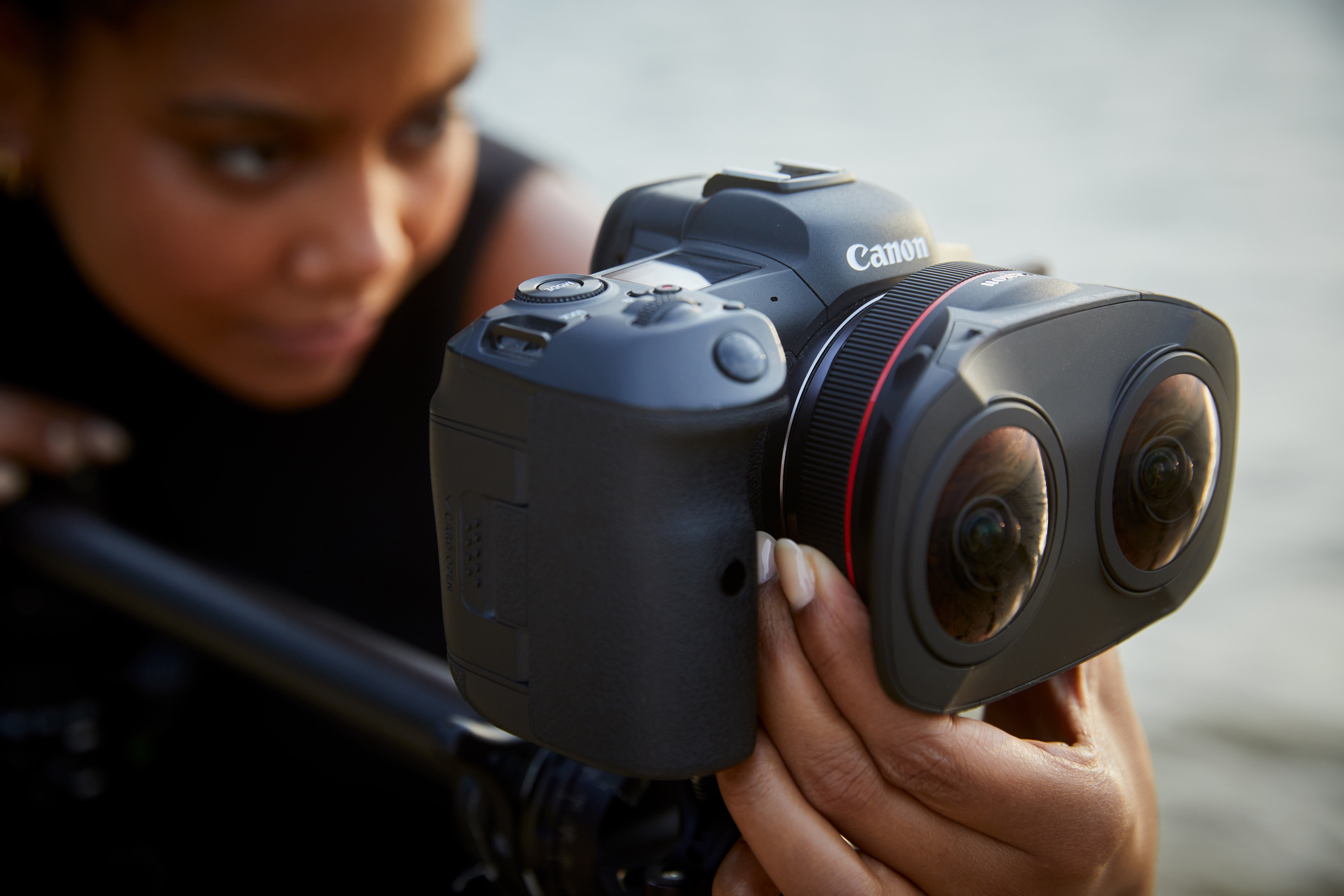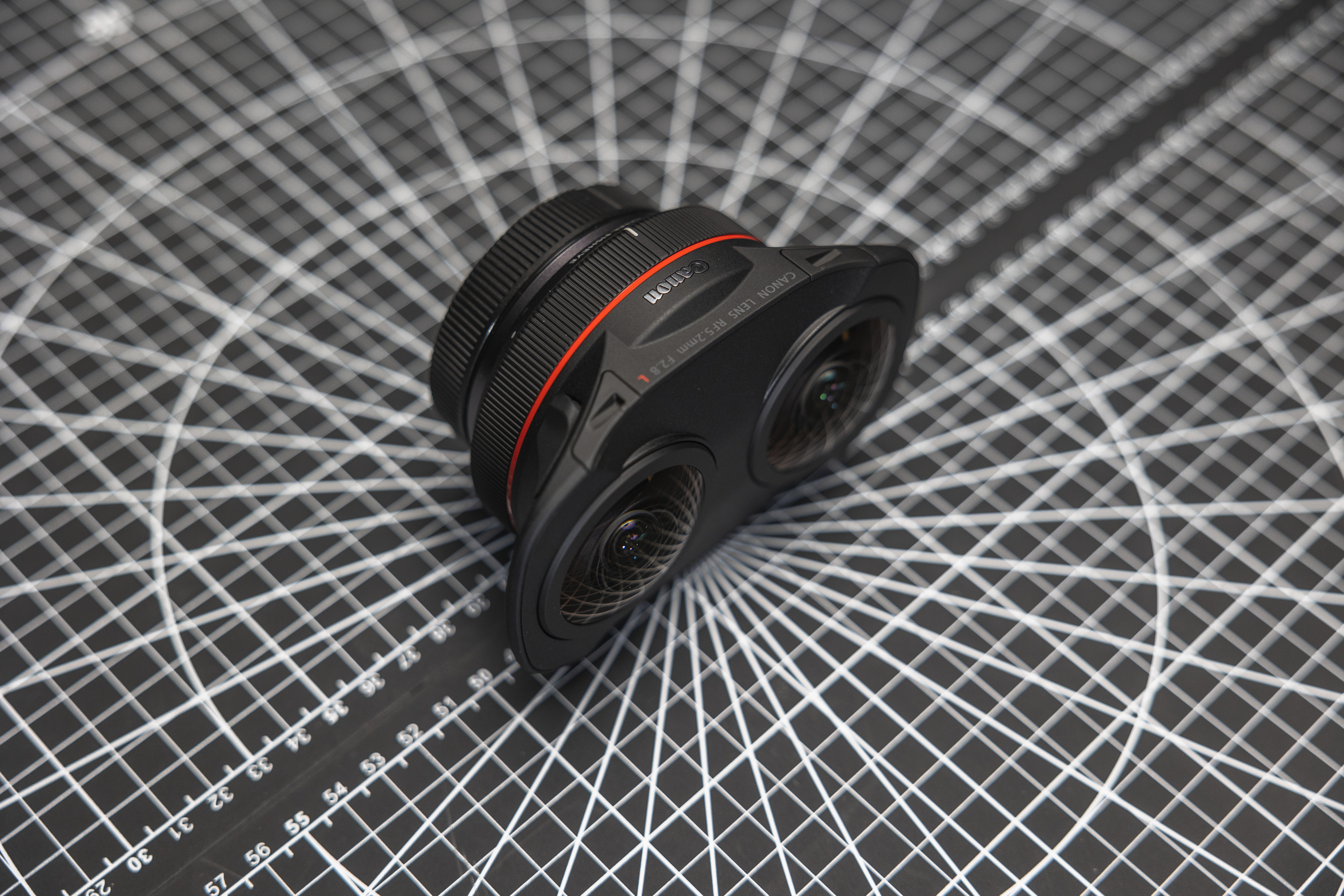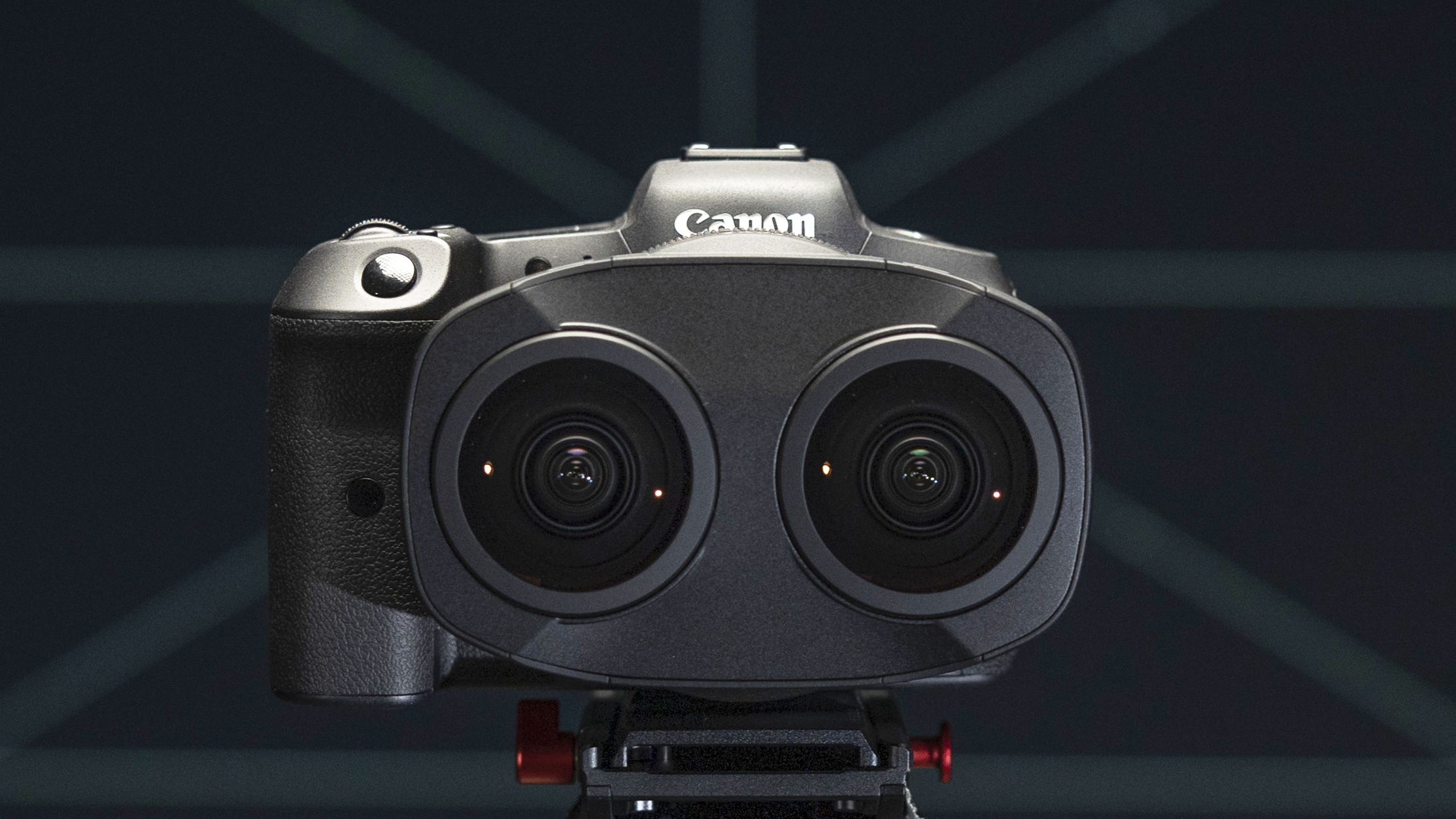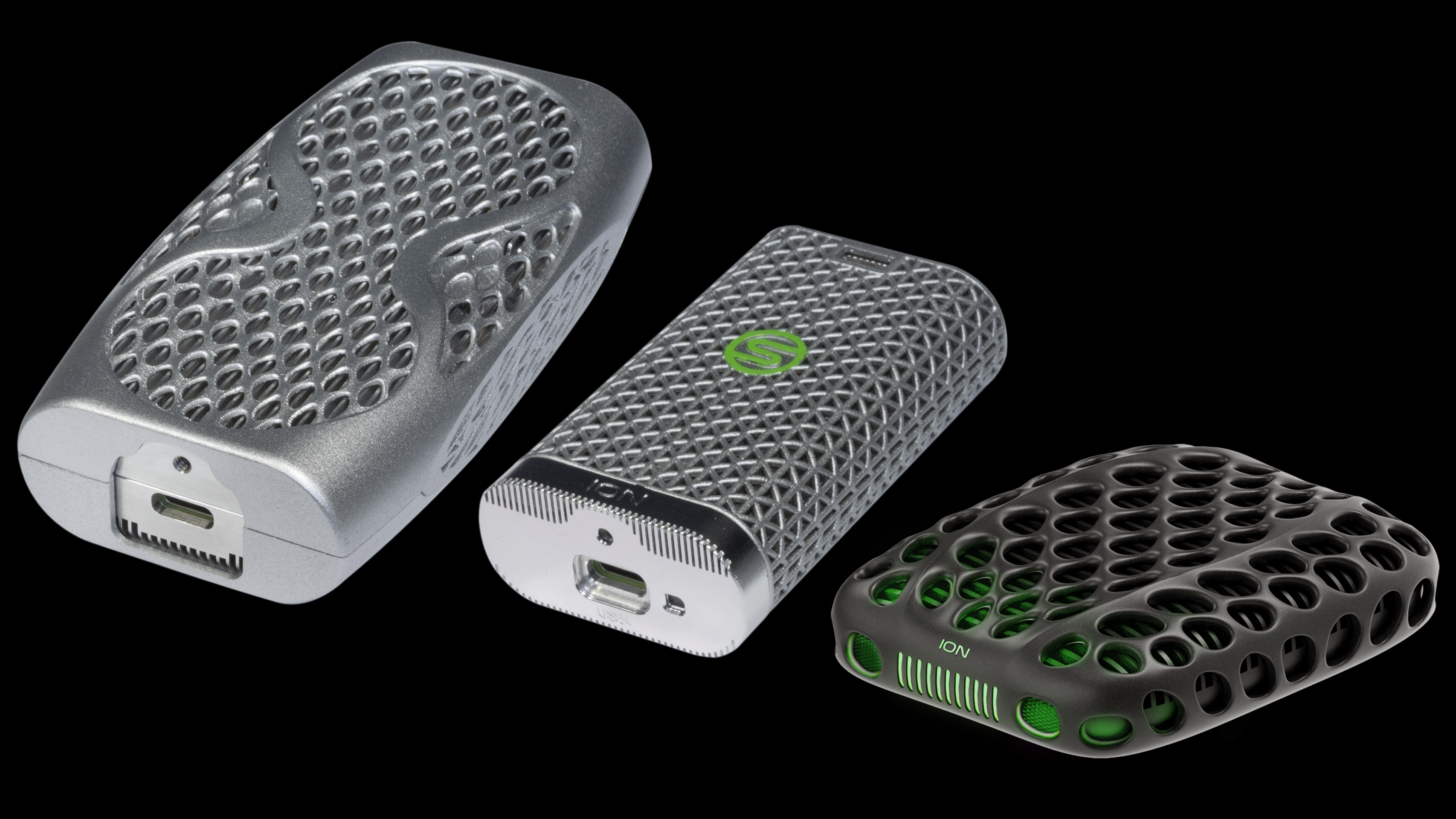Canon launches a 3D VR lens: the Canon RF 5.2mm f/2.8L Dual Fisheye
The Canon RF 5.2mm f/2.8L Dual Fisheye lens brings 3D VR to your EOS R5 (and it looks like a Pixar character)

Canon has announced its first 3D virtual reality lens, the Canon RF 5.2mm f/2.8L Dual Fisheye – a revolutionary stereoscopic 180° VR lens for video and stills, aimed at everything from the healthcare and manufacturing industries to filmmakers and VR content creators.
Currently compatible exclusively with the Canon EOS R5 (though firmware may bring functionality to bodies like the Canon EOS R6 in the future), the Canon RF 5.2mm f/2.8L Dual Fisheye focuses on professional-level 8K image quality to deliver the most immersive and realistic experiences possible.
• Read more: Best Canon RF lenses
The Canon RF 5.2mm f/2.8L Dual Fisheye sits at the heart of Canon's new EOS VR System, which comprises a new proprietary VR app called EOS VR Utility, along with the EOS VR Plug-in for Adobe Premiere Pro. With these three pillars, the manufacturer aims to streamline the production and post-production process.
This speaks to the 180° nature of the Dual Fisheye lens. Unlike the best 360 cameras, which give an all-encompassing view of the action, Canon's system opts for a 180° view in order to make storytelling simple and reduce workflow challenges. It is, for instance, hard to hide your lights and microphone with a 360 camera!
There are a number of standalone cameras that shoot VR using dual lenses, including the Insta360 Evo and Vuze XR, along with high-end systems like the Matterport 3D VR, which provides virtual walkthroughs of buildings. Canon is seeking to put this technology in the hands of creatives and professionals on a pure camera body, as opposed to a system that's much more limited in scope. But how does it actually work?
• See Best VR headset
Get the Digital Camera World Newsletter
The best camera deals, reviews, product advice, and unmissable photography news, direct to your inbox!

Canon RF 5.2mm f/2.8L Dual Fisheye: How it works
Previous stereoscopic camera and cinema rigs, including those made by Canon and Panasonic, required two cameras with two sensors and two lenses. The new EOS VR system instead features a pair of hyper-wide 190° field of view lenses, which project two circular equirectangular images onto a single camera sensor.
This ensures perfect alignment and synchronization, without which the stereoscopic effect falls apart – one of the perils of a two-camera system. By confining both sets of images to a single sensor, it also makes sure that image quality and exposure are consistent – again, something that can't be guaranteed when using two cameras, even with identical setups. And of course, it means you only need to work with a single file – so no more having to marry two separately captured sources.
The Canon RF 5.2mm f/2.8L Dual Fisheye boasts a pair of precisely synchronized electromagnetic diaphragm units to control the aperture for each lens. Two ultra-dispersive elements help maintain edge-to-edge sharpness from the hyper-wide field of view, with sub-wavelength coating on the lenses to control the ghosting and flare that's a common complaint of VR shooting.
The fast f/2.8 aperture (combines with the R5's impressive ISO performance) means that the lens and EOS VR System can be used even in challenging light conditions. However, the Dual Fisheye lens also features a gelatin filter holder across the rear elements – enabling third-party ND filters to be used, in order to maintain the correct shutter speeds for capturing video.

Canon EOS VR System: What do you need
Obviously you need the new Canon RF 5.2mm f/2.8L Dual Fisheye and, as noted, the EOS VR System currently only supports the Canon EOS R5.
You will need the EOS VR Utility software or the VR Plug-in for Adobe Premiere Pro (and, of course, Adobe Premiere Pro itself) to convert the dual circular fisheye footage to a standard 180° VR format for editing, before playing back on a suitable VR headset.
By building the technology around the R5, Canon is making 8K output a priority (though 4K and 1080p capture is still possible) – in essence future-proofing the EOS VR System, even if that means a rather high price for entry.
The Canon RF 5.2mm f/2.8L Dual Fisheye is priced $1,999.00 / £2,099.99 / AU$3,849 and goes on sale in December.
Read more:
Canon EOS R5 review
Best camera for real estate photography
Insta360 Evo review
Vuze XR review

James has 22 years experience as a journalist, serving as editor of Digital Camera World for 6 of them. He started working in the photography industry in 2014, product testing and shooting ad campaigns for Olympus, as well as clients like Aston Martin Racing, Elinchrom and L'Oréal. An Olympus / OM System, Canon and Hasselblad shooter, he has a wealth of knowledge on cameras of all makes – and he loves instant cameras, too.
